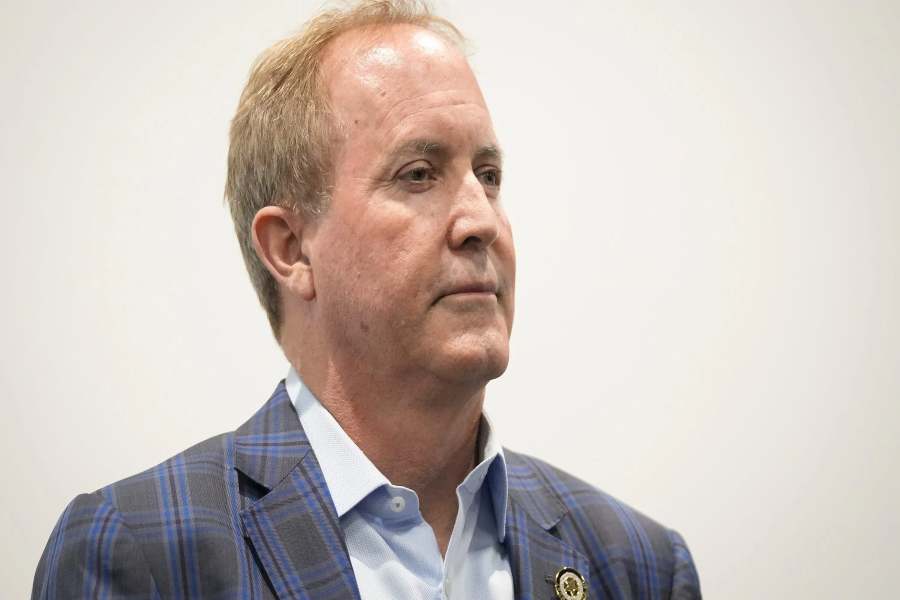A Texas midwife has been arrested and charged with allegedly performing illegal abortions, marking a significant legal test of the state’s restrictive abortion laws. Attorney General Ken Paxton announced Monday that Maria Margarita Rojas, 48, is facing charges of illegally performing an abortion and practicing medicine without a license. The case comes amid ongoing legal battles over abortion rights in Texas, a state with some of the strictest anti-abortion laws in the country.
Court records obtained by USA TODAY confirm that Rojas was formally charged on March 12 for practicing medicine without a license, a third-degree felony under Texas law. The Waller County District Attorney Sean Whittmore referred the case to Paxton for prosecution. As of Monday, it remained unclear whether Rojas had secured legal representation, and no court appearance date had been set.
Attorney General Paxton has been vocal about his commitment to enforcing Texas’ stringent abortion laws, emphasizing the state’s position on protecting the unborn. In a statement, Paxton declared, “In Texas, life is sacred. I will always do everything in my power to protect the unborn, defend our state’s pro-life laws, and work to ensure that unlicensed individuals endangering the lives of women by performing illegal abortions are fully prosecuted.”
Rojas, who allegedly referred to herself as “Dr. Maria,” operates three clinics in the Houston area and was taken into custody in Waller County, northwest of Houston. Despite holding an active midwifery license since 2018, she is accused of violating the Texas Human Life Protection Act by allegedly performing illegal abortions and employing individuals who falsely presented themselves as licensed medical professionals.
Paxton is also seeking a temporary restraining order to shut down all three of Rojas’ clinics, escalating the legal battle. His office reiterated in a statement, “Texas law holds abortion providers − not patients − criminally responsible for unlawful procedures.”
The allegations against Rojas have drawn mixed reactions from colleagues and medical professionals. Holly Sherman, a fellow midwife and operator of the Tomball Birth Center, where Rojas worked part-time, expressed disbelief at the accusations. “I don’t believe it for one second,” Sherman told the Texas Tribune. “I’ve known her for eight years, and I’ve never heard her talk about anything like that. I just can’t picture Maria being involved in something like this.”
Sherman described Rojas as a devout Catholic who primarily provided medical care for low-income Spanish-speaking communities. The Texas Attorney General’s Office and the Waller County District Attorney did not immediately respond to requests for comment regarding the case.
Rojas’ arrest is one of the first criminal cases of its kind under Texas’ near-total abortion ban, which has drawn national attention for its strict regulations. The Texas Human Life Protection Act, which took effect in 2022, outlaws nearly all abortions, with no exceptions for cases of rape or incest. Under Texas law, abortions can only be performed when the pregnant mother’s life or health is at risk. Performing an illegal abortion is classified as a second-degree felony, carrying severe legal consequences.
The Texas Attorney General also has the authority to seek civil penalties of at least $100,000 per violation for unlawful abortion procedures, reinforcing the state’s aggressive enforcement of its abortion laws. However, under the law, patients who receive an abortion are not held criminally liable.
Rojas’ arrest comes amid a broader legal crackdown on abortion providers in Texas. Just months ago, Paxton sued a New York doctor accused of mailing abortion pills to Texas in violation of state law. In that case, a Texas judge imposed a fine of over $100,000 against the doctor, setting a precedent for the state’s aggressive prosecution strategy.
The case against Rojas is likely to fuel ongoing national debates over abortion access and the criminalization of reproductive healthcare providers. While some Texas officials argue that these laws are necessary to protect the unborn, critics contend that they unfairly target healthcare providers and create dangerous barriers to medical care.
As the legal proceedings move forward, Rojas’ case will serve as an important test of Texas’ abortion restrictions and could have major implications for other medical professionals operating in the state. The outcome of this case may set legal precedents for how Texas and other states enforce strict anti-abortion legislation in the years to come.


